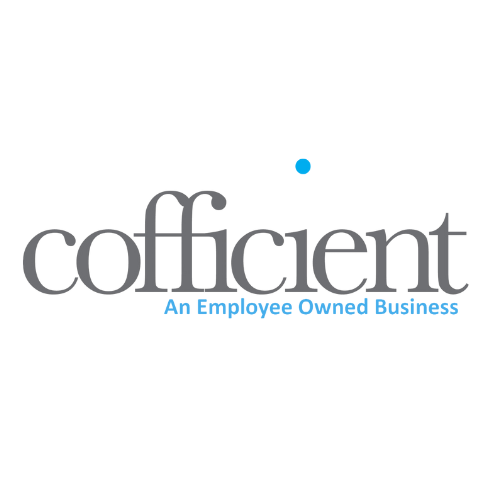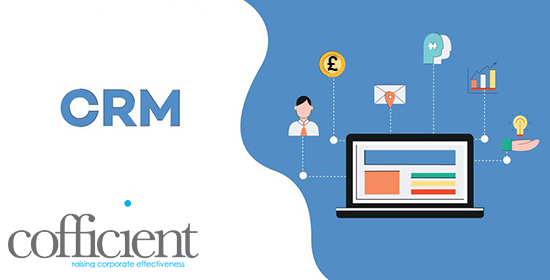Alternative to Salesforce
Need CRM?
Then I am guessing you are probably considering Salesforce?
For sure, the market is saturated with customer relationship management (CRM) software.
From free and freemium products like Zoho and Pipedrive through to market leading products like Salesforce and Sage ACT.
It’s a minefield if you are trying to find something which ticks all your boxes.
But what if you want an alternative to Salesforce?
What Else Is On Your Shortlist?
When people talk to Cofficient about CRM software, 90% of the time Salesforce has made it onto the shortlist, and has already delivered a demonstration.
Actually, by the time people find Cofficient (and NetSuite), they’ve often been through the Salesforce process and decided it’s not for them – forcing them to REALLY search for an alternative to Salesforce on the market place.
Stuff to Know About Salesforce
Salesforce, founded in 1999, is one of the earliest cloud based software as a service (SaaS) products. Its provenance is undoubted and it has ploughed a very deep furrow in the sales software market.
Salesforce have also invested a tonne of money into their brand and marketing campaigns. As a consequence, they benefit from having a “well kent face” in the business community.
But does that mean they are the best?
Let’s consider an alternative.
Stuff to Know About NetSuite
NetSuite, by comparison was founded a year earlier in 1998. Both software are of American provenance and compete in the SaaS market. But while Salesforce decided to focus on sales-only software, NetSuite (starting originally as financial software) had bigger ambitions to be a full business enterprise suite.
While Salesforce ploughed a lot of money into brand marketing, NetSuite channeled most of its funds into product development.
The consequence is that NetSuite has extraordinary (and often unrivaled) capability across multiple functions including:
- finance
- salesforce automation
- project management
- professional services automation (PSA)
- manufacturing (MRP)
- services automation
- e-commerce (omnichannel retail)
- distribution
It is still a relatively unknown software, in the market place, by comparison.
NetSuite vs Salesforce
American businesses are very much sales focused. As you know, being a sales professional in America is considered a noble profession; growing your business by driving sales hard, is the American dream.
So “growing up” in this environment, both these American software companies very much compete with each other.
They compete in terms of functionality (on the sales and marketing automation front).
They compete for custom.
They just don’t compete for brand awareness.
In November 2016, Oracle purchased NetSuite for $4.9bn. Wanting to expand their cloud offering, it made more sense to fill the gaps through acquisition, than to build from scratch.
The plan might be to raise the NetSuite profile in the market place through improved branding and marketing communication. NetSuite would certainly benefit from it.
In terms of comparison of products, there’s very little to differentiate NetSuite from Salesforce in terms of functionality.
- Both SaaS products
- Both have powerful salesforce automation
- Both have built in email engines (Salesforce has Marketing Cloud)
- Both have powerful analytics and big data tools
- Both have great customer service and case management platforms
Where NetSuite really comes into its own is when you want to link front and back office.
Salesforce stops at sales order.
If you use NetSuite financials the sales order then pushes into fulfillment (if you sell “stuff”) or project management (if you sell “services”) and also into finance for raising invoices and collecting payment.
The business intelligence you get from running everything off one, unified system is unparalleled.
Even if you don’t want to use NetSuite financials, the CRM capability on its own is at least as powerful as Salesforce. And you can be secure in the knowledge that if you wanted to roll out financials at some future point, you can turn on NetSuite financials (literally) overnight.
The Last Word…
It’s worth mentioning that Salesforce and Sage (the defacto finance software in the UK) announced a business venture back in 2015; a Global Strategic Partnership which was going to connect Salesforce CRM to Sage Finance, thus offer the full enterprise (ERP) experience.
By climbing into bed with each other they hoped to truly rival the likes of NetSuite.
It’s an odd pairing though.
Sage is traditionally on premise while Salesforce is cloud based. Sage has lots of detractors these days whereas cloud software like Salesforce is on the up. Since the announcement, little has been heard, either in terms of success, or development.
This is why NetSuite were wise to plough their investment into the development of the software. From a branding perspective the may have fallen behind, but from a functionality perspective they are miles ahead. So much so that others simply can’t keep up.
That is one of the reasons why now, after years of languishing in the shadow of Salesforce, NetSuite is the world’s fastest growing cloud based software.
Oh….and it’s a great alternative to Sage financials too.
Written by Emma Stewart – Sales & Marketing Director at Cofficient. Ex Salesforce user and NetSuite Evangalist.
Coming soon: CRM Whitepaper – How to Run an Effective CRM Project. Get in touch to pre-order your free copy
[su_button url=”www.cofficient.co.uk/contact” style=”3d” size=”5″ center=”yes” icon=”icon: book”]Talk to Emma about CRM[/su_button]



